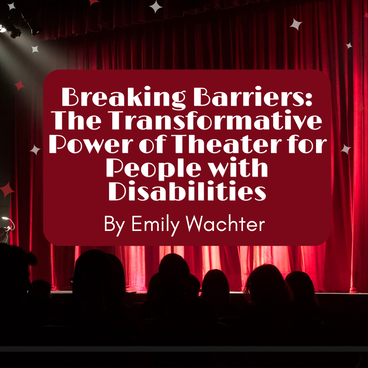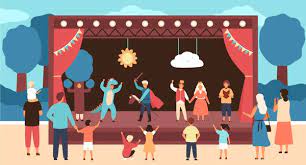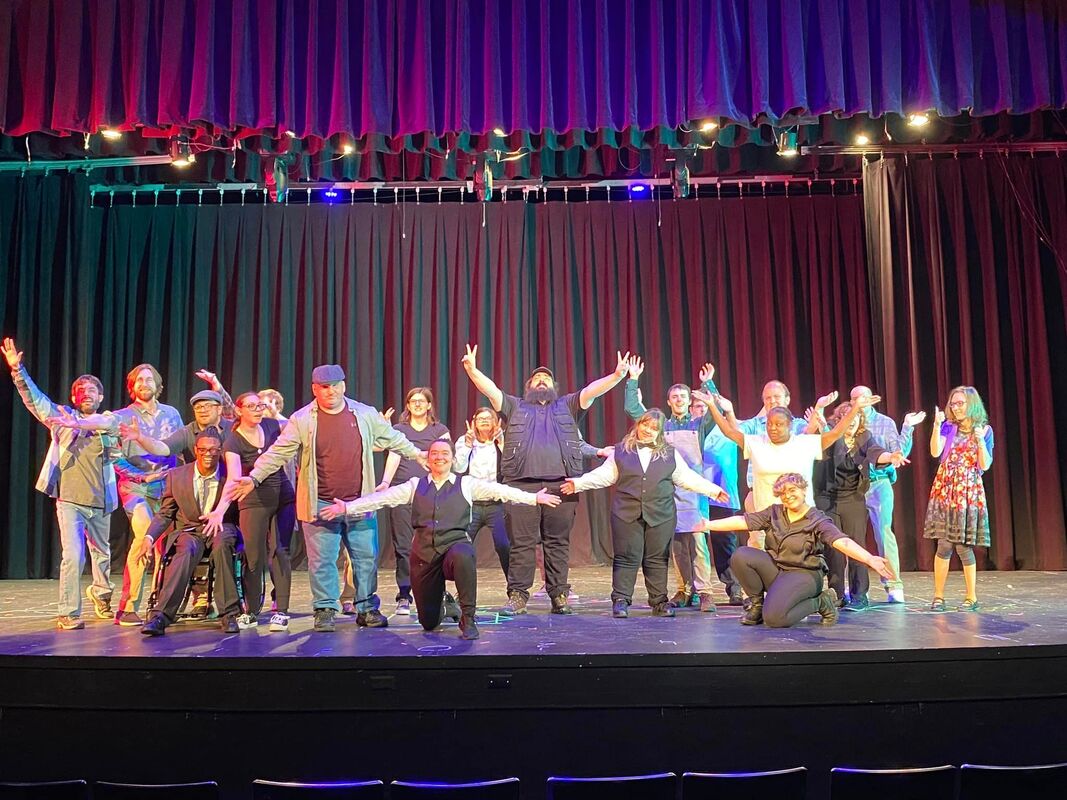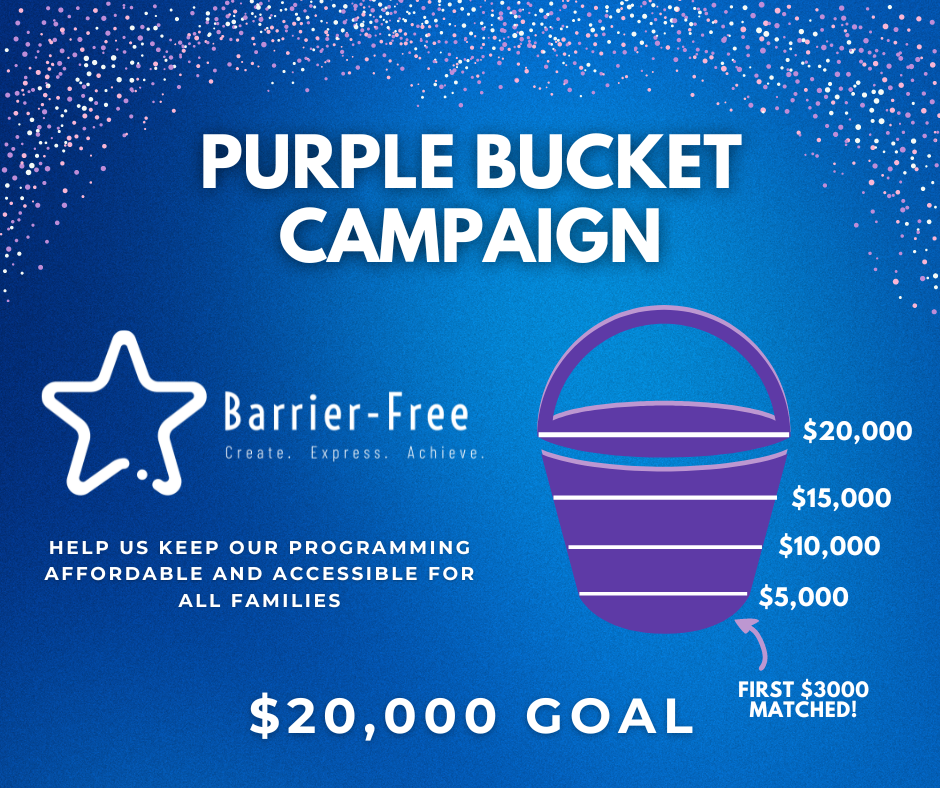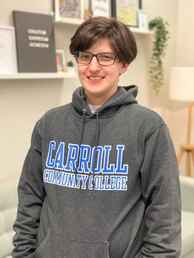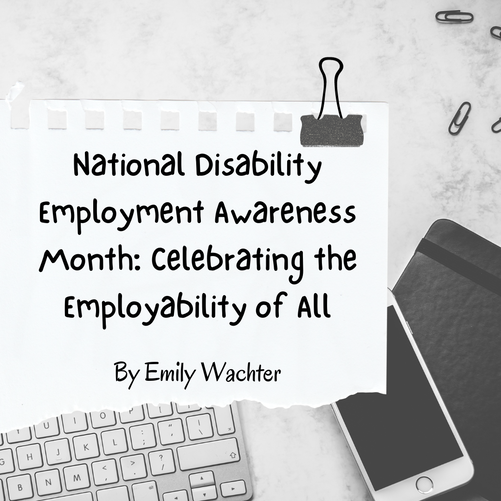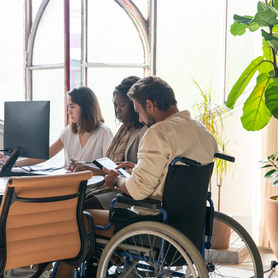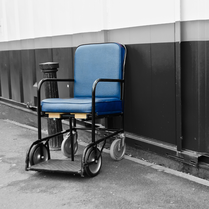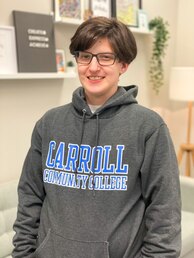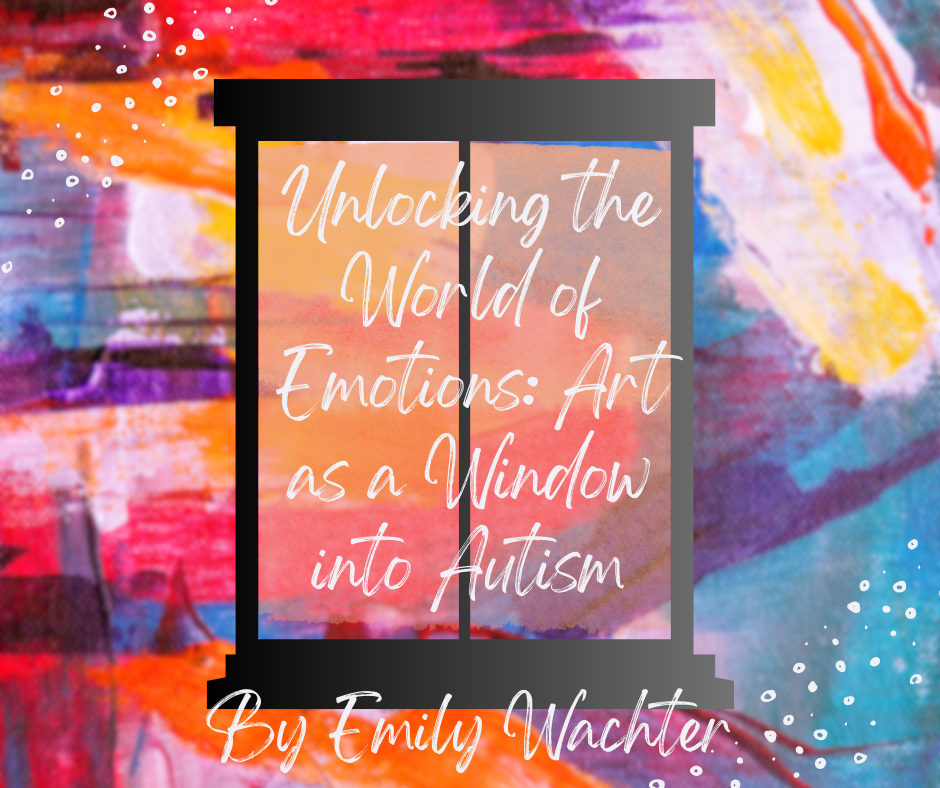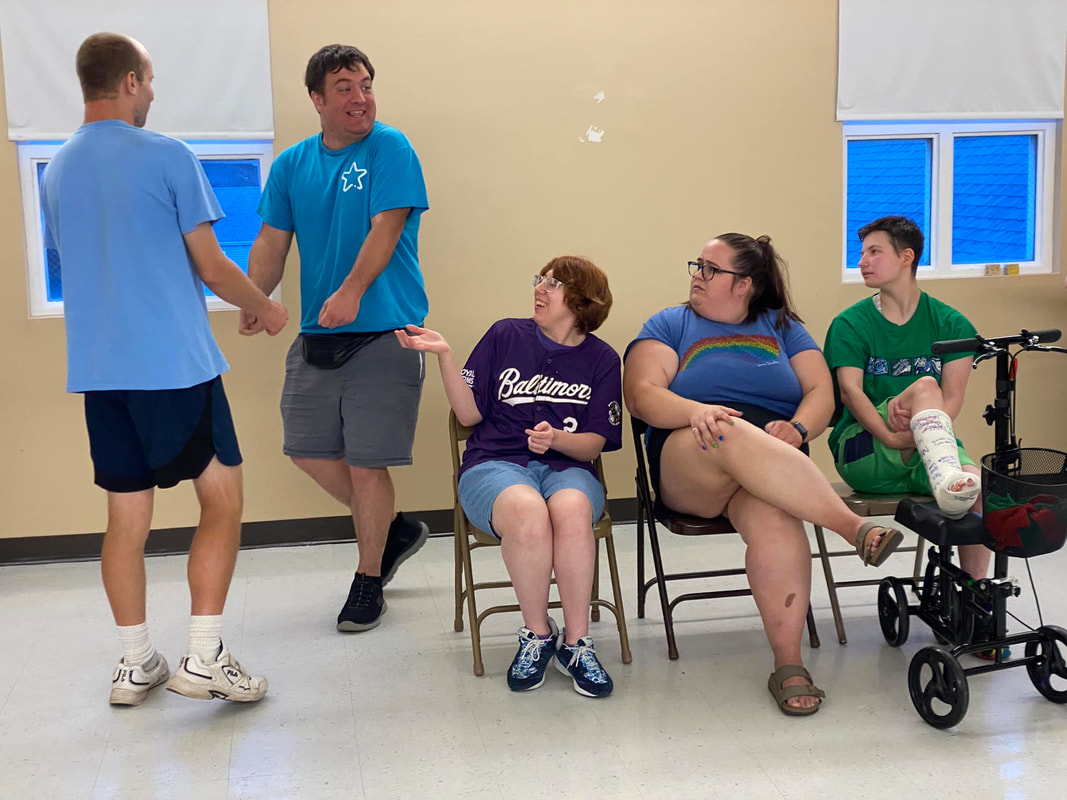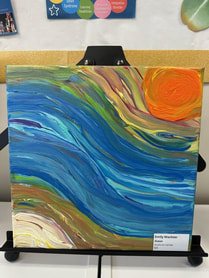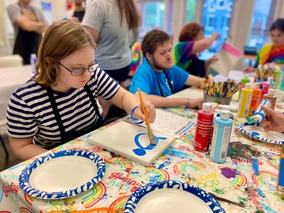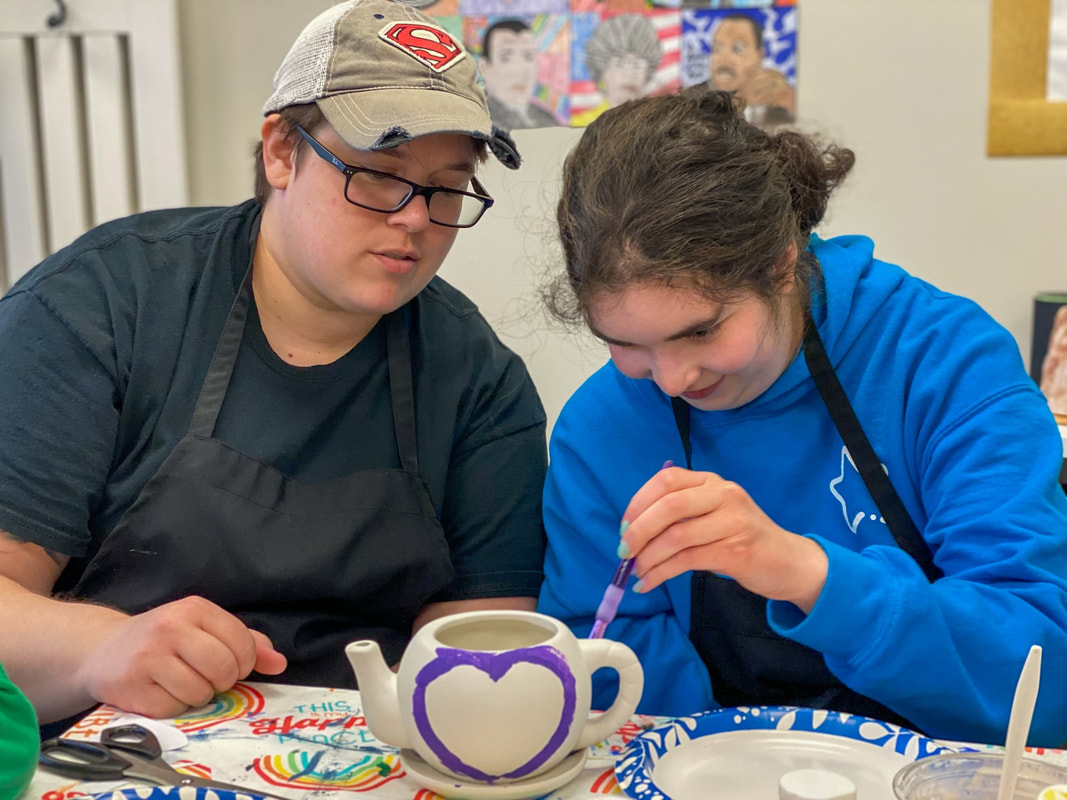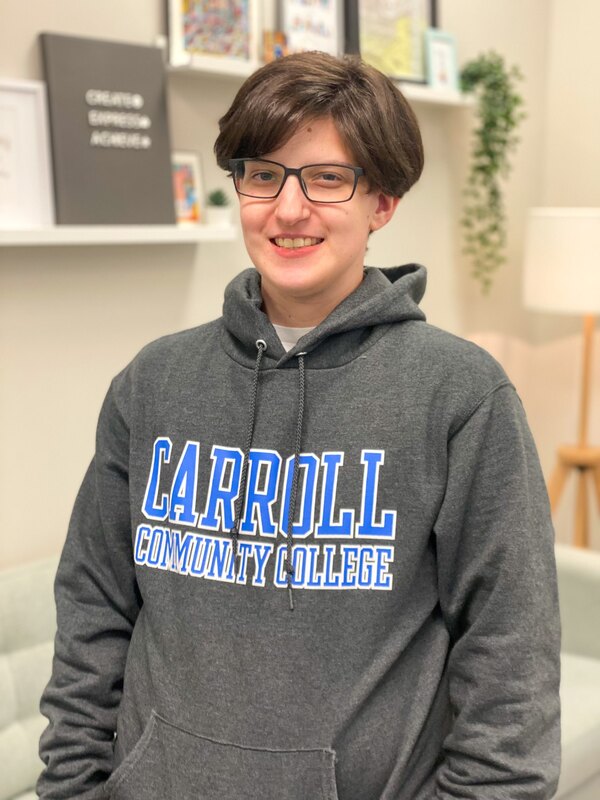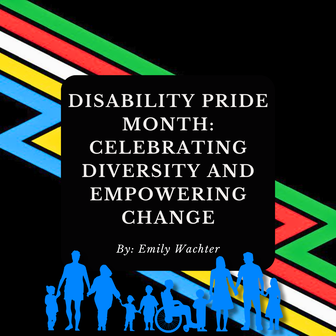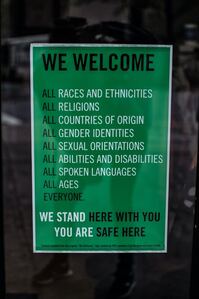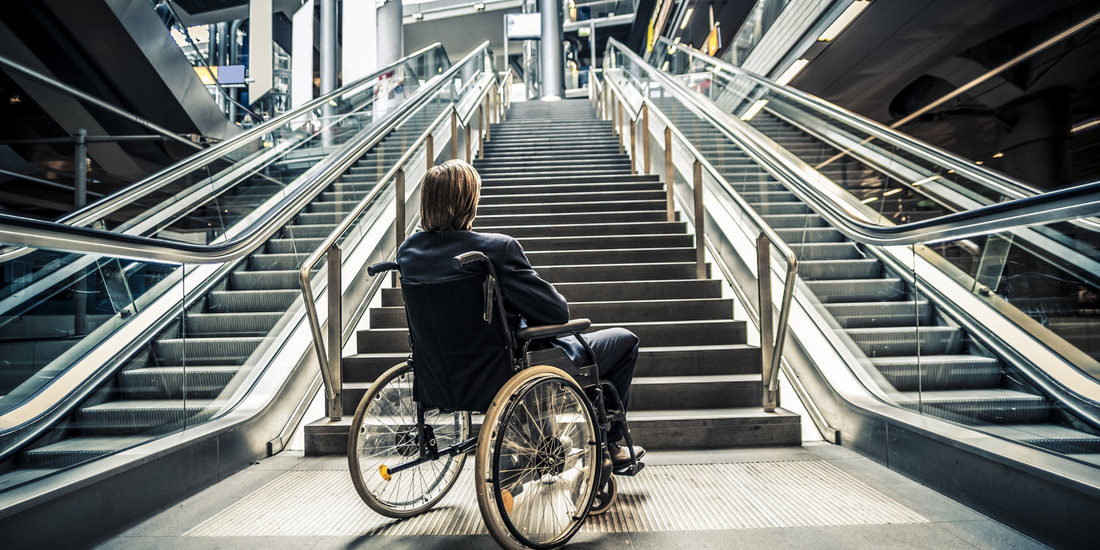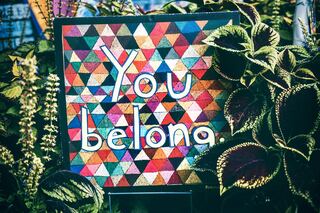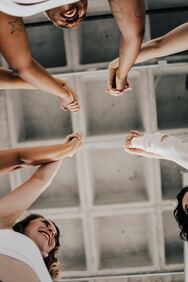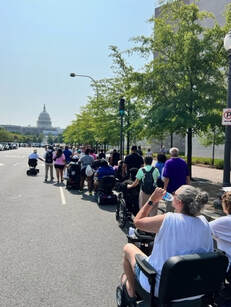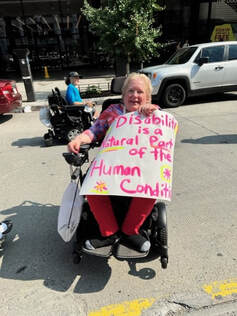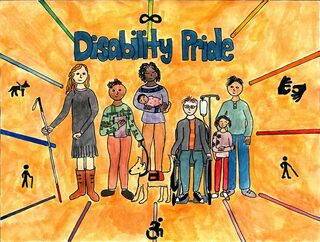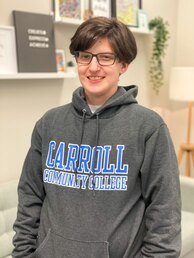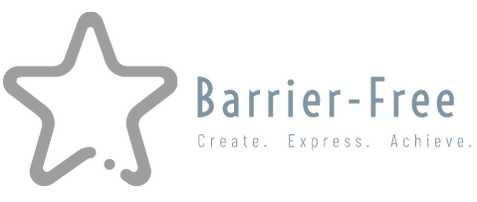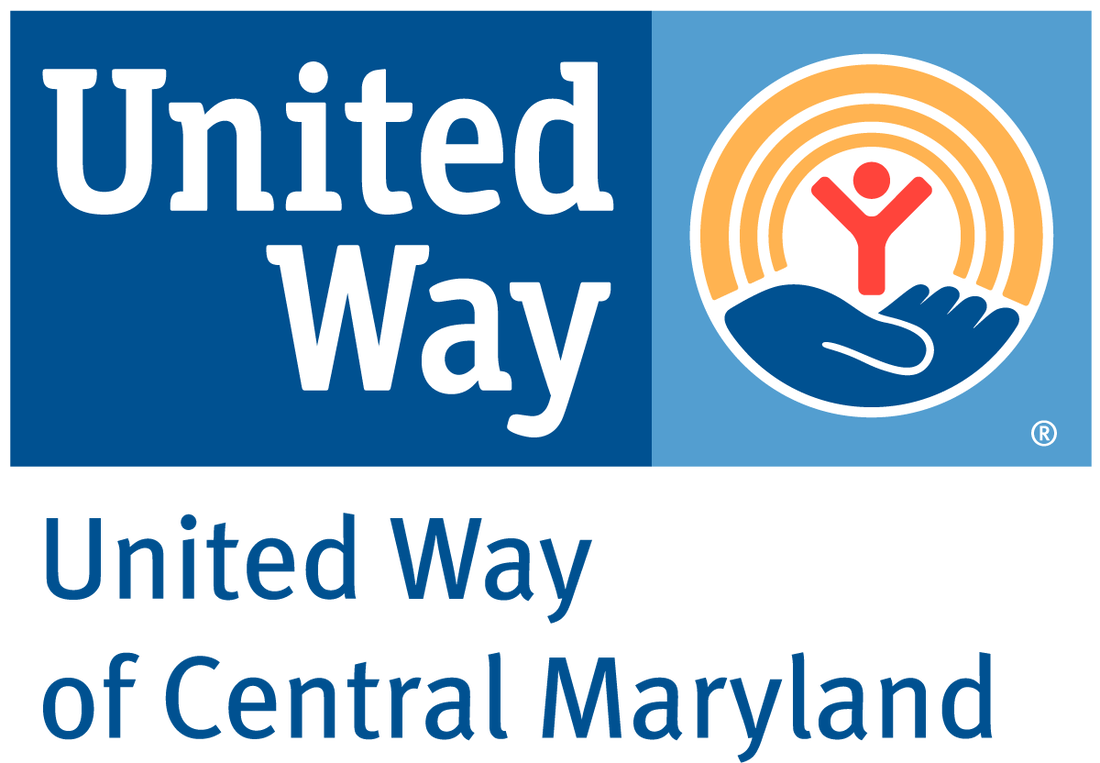|
In the world of performing arts, theater stands as a powerful medium that transcends boundaries, connecting people through shared experiences. For individuals with disabilities, theater becomes more than just a form of entertainment; it is a transformative force that breaks down barriers and creates inclusive spaces for self-expression, empowerment, and community building.
In the grand theater of life, every individual deserves a spotlight. Theater for people with disabilities is not just about providing a seat at the table; it's about creating a stage where everyone's story can be told and celebrated. As we continue to embrace inclusivity in the performing arts world, we pave the way for a more diverse, understanding, and empathetic society where the curtain never falls on the pursuit of equality and acceptance. Here are some highlights from 2024 Inclusive Theater Performance: Café Catastrophe & Love Unscripted
0 Comments
Every October, we celebrate National Disability Employment Awareness Month (NDEAM), a time to recognize and promote the diverse talents and abilities of individuals with disabilities in the workplace. This month is a powerful reminder that everyone is employable regardless of their abilities. In this blog, we explore the importance of NDEAM and the principles of inclusivity and diversity in the workforce.
Celebrating Success Stories NDEAM is an opportunity to celebrate success stories. Countless individuals with disabilities have overcome barriers and achieved remarkable success in various fields. These stories not only inspire others but also underscore the value of inclusivity. Within Barrier-Free several individuals have had successful placements within the Downtown Sykesville community. Katie, Tyler, and Sophia have each embarked on their individual journeys towards success. Katie has found her place at Botigal, where she shines every Friday. Tyler's dream of working in the world of music has come true with his job at The Band Shoppe. Meanwhile, Sophia dedicates her time and passion to helping out at Tidal Salt every week. Their stories reflect the triumph of determination and the fulfillment that comes from pursuing one's goals. These individuals are not just employees; they are the embodiment of success in their chosen paths, inspiring others to follow their dreams with the same dedication and enthusiasm. Inclusive employment partnerships include: Botigal, The Band Shoppe, Tidal Salt, and the Sykesville Downtown Connection. National Disability Employment Awareness Month is not just a celebration; it's a call to action. It reminds us that inclusivity and diversity are strengths, not weaknesses. It challenges us to look beyond disabilities and recognize the immense talents and abilities that everyone, regardless of their background, brings to the workplace. As we celebrate NDEAM, let us recommit to creating a world where everyone is employable and genuinely embraced, valued, and empowered in their professional journeys. It's a vision where we all benefit from the unique perspectives and talents of one another, and together, we create a more vibrant and equitable workforce.
We're thrilled to announce that Barrier-Free has been awarded grants from both the Carroll County Arts Council and Maryland State Arts Council! 🎉
The Carroll County Arts Council has awarded Barrier-Free $11,100 and The Maryland State Arts Council has awarded $5,209. This generous support will empower us to further our mission of inclusivity through community-based, arts-integrated programs for the community. Grant funds will bolster our general operations and fuel our inclusive theater company productions. A huge thank you for believing in our mission and vision! 🎭🎨 #InclusiveArts #InclusiveTheater #BarrierFree #MSAC #CCAC Introduction Art is a universal language that transcends boundaries and speaks to the depths of our souls. For individuals on the autism spectrum, this form of expression can be particularly transformative. In this blog post, we delve into the remarkable world of art as a means of communication and self-expression for those with autism. We'll explore the unique ways art empowers individuals on the spectrum, fosters connections, and offers a window into their inner worlds.
Here are some recent photos from the Art Gallery:Conclusion Art is a remarkable form of expression that transcends barriers and provides individuals with autism a unique avenue to communicate, connect, and grow. It transcends the limitations of words, offering a non-verbal language through which they can convey their emotions, thoughts, and unique perspectives. Art provides a window into their inner worlds, fosters connections, builds confidence, and supports sensory regulation. As we celebrate the transformative role of art in the lives of those with autism, let us continue to provide opportunities for them to express themselves creatively and connect with the world in their own extraordinary way.
Introduction: Recently, a movement has been growing to celebrate and promote disability pride. Disability Pride Month, observed annually in July, provides a platform to raise awareness, challenge stigmas, and foster a sense of inclusivity and acceptance for individuals with disabilities. The month of July was chosen as Disability Pride Month because the Americans with Disabilities Act was signed in law on July 26,1990. Over the years, celebrations have become more widespread and more cities have officially recognized the month. It is a time to recognize the unique experiences, strengths, and contributions of people with disabilities and to advocate for a more equitable and accessible society. In this blog, we delve into the significance of Disability Pride Month and explore why it is essential to celebrate and embrace disability pride.
Here are some recent photos from Disability Pride Fest at MakeStudio:Conclusion: Disability Pride Month is an essential time to celebrate the diversity, achievements, and resilience of individuals with disabilities. It is a month to challenge stigmas, promote accessibility, empower individuals, and advocate for change. Allies can support us by centering disabled voices, establish a foundation of accessibility in every space you're in, join advocacy efforts without speaking over disabled people, and challenge implicit bias you hold surrounding disability. By embracing disability pride, we create a society that values and respects the contributions and worth of every individual. Let us come together to celebrate Disability Pride Month and work towards building a more inclusive and equitable world for all.
|
About our BlogThe Barrier-Free blog exists as a space to share Barrier-Free news, helpful information, and a creative sharing space. Archives
March 2024
Categories
All
|
|
Copyright © Barrier-Free 501(c)(3) All rights reserved.
|
|

